Member of the Politburo of the CPSU Central Committee. In the Soviet Union, this was the highest level of party power. But the party led all the ongoing processes, which means that the post-owner has reached the heights of state recognition in his country. This is what Fedor Davydovich Kulakov was remembered for - in the 70s, one of the youngest and most energetic members of the Politburo of the Communist Party of the Soviet Union.
Childhood and youth
Kursk region, the village of Fitizh. Here on February 4, 1918 Kulakov Fedor Davydovich was born. The family was peasant. Information about childhood is very mean and incomplete. Helped at home with the housework, studied at school. From a young age he knew the taste of peasant labor, salty from sweat and the price of a loaf of coarse, home-made bread. Therefore, when it came time to determine the future profession, I did not hesitate to choose the work of the farmer.
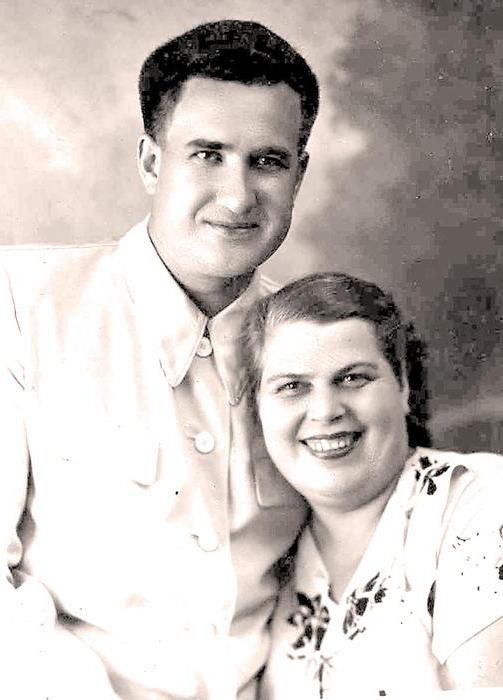
Fedor went to study in the neighboring district center of Rylsk, in 1922 an agricultural college was opened in it. A peasant guy entered there. The ancient city with its sights and other temptations did not distract the young man from his main goal - study. Fedor Davydovich Kulakov from childhood was accustomed to do everything thoroughly as a peasant. At the age of 20, after graduating from a college, he was sent to work in the Tambov region. From that time on, a working biography of a man began, who was destined to rise to the very heights of the Soviet party hierarchy.
Start of work
In 1938, a young specialist Fedor Davydovich Kulakov came to the Uritsky beet farm of the Tambov region. Yesterday a graduate of the agricultural technical school was immediately appointed an assistant to the head of the department, educated young staff in the village were sorely lacking. The infamous Stalinist purges took place not only among the army commanders. The village was also affected by mass repressions, and many agricultural leaders were arrested and received long prison sentences. And the country desperately needed food. Therefore, the young agronomist had to work tirelessly. A symbolic coincidence: in the same 1938, the Supreme Soviet of the USSR established the award “Hero of Socialist Labor”. Kulakova was awarded this title in 1978 in honor of the 60th anniversary.
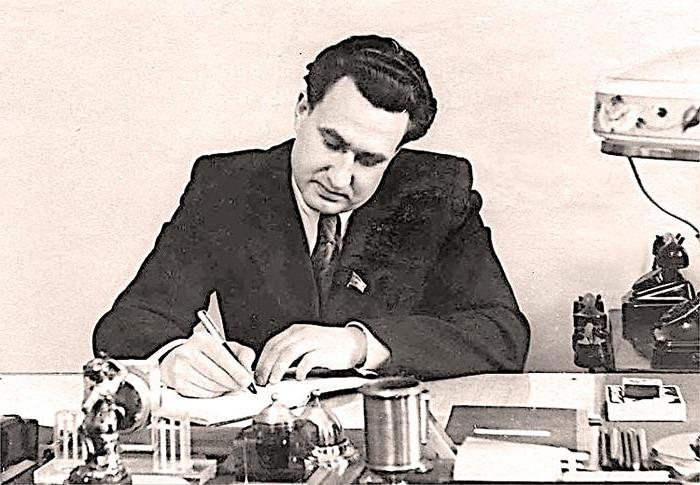
In Uritsky beet farm, Fedor Davydovich worked as the head of the department, and later was transferred to the Penza region as the head of the department, and after a while became an agronomist of the Zemetsky beet farm. At the same time he joined the ranks of the Communist Party (1940).
During the war
Along with production activities, the young agronomist was engaged in Komsomol and public affairs. Soon his professional party career began. In 1941, a new secretary, Kulakov, appeared in the Zemetchinsky district committee. Fedor Davydovich, information about his appointment quickly flew around the Komsomol organizations, began to travel a lot around the area. His official duties have become larger: now he was responsible for the work of youth at all enterprises of the Zemetchinsky district.
The outbreak of war brought its own adjustments to the life of the young leader. They didn’t take him to the front, they needed specialists who could organize uninterrupted work in the rear. Just such a man showed himself Kulakov. Fedor Davydovich, whose biography until this time was firmly connected with agricultural production, after working in the district committee becomes the head of the district land department. Now, he took care of the work of all agricultural enterprises in the region.
And forged behind the victory
The rapid career advancement of the young leader indicates that he was a sensible and highly professional person. Under difficult conditions, he managed to organize the uninterrupted operation of enterprises whose products were used to supply the Red Army and defense enterprises. By 1944, Fedor Davydovich Kulakov had already successfully headed the district executive committee and district party committee in the Nikolo-Pestravsky district.
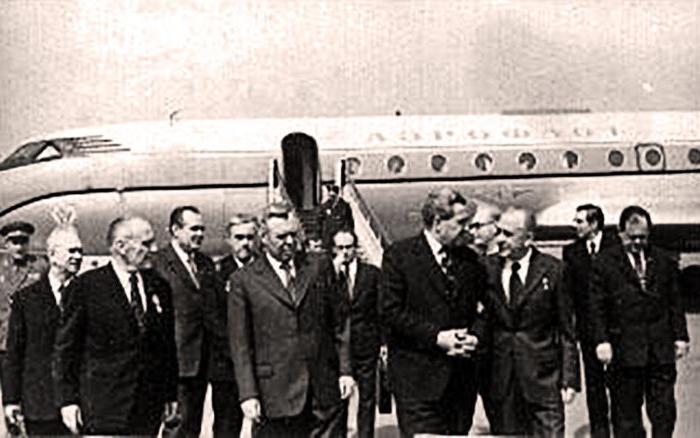
Intense wartime boldly put forward quite young people to leading posts. At other times, their fate could have turned out differently, but the victorious offensive on the fronts commanded by the young generals should have been supported by the smooth operation of the rear. And here the initiative belonged to the same young business executives. In 1944, at the age of 26, Fedor Davydovich became the head of the agricultural department of the Penza regional party committee and the regional agricultural administration. In this position, Kulakov met the victory on May 9, 1945. Ahead of the young party leader was a peaceful life and new interesting work.
Climbing to the top
The Penza region has become the place where the major leader Fedor Kulakov was formed. A statesman and party worker, he quickly went through all the steps of a long career ladder. When in 1950 he was entrusted with heading the Penza Regional Council of People’s Deputies, he was already a well-established leader with a verified position and clear views on the organization of public administration. True, Kulakov did not stop at this work. A promising leader and practitioner in the field of agriculture was in demand in his main specialty. Since 1955, Fedor Davydovich has been working as Deputy Minister of Agriculture, and in 1959-1960 he headed the Ministry of Bread Products. At the same time, he fills the gaps in education - in absentia, graduates from the Institute of Agriculture (1957).
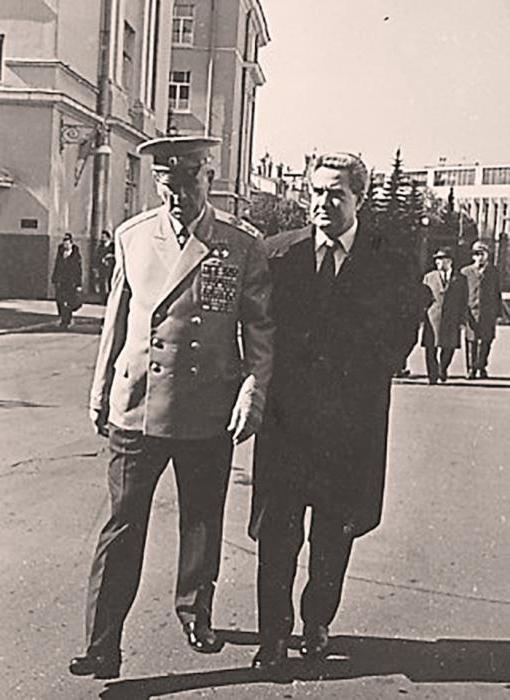
And then what many Kulakov’s biographers call “honorable exile” happened. Fedor Davydovich was sent to party work in Stavropol. Here, from 1960 to 1964, he headed the regional committee and became a member of the Central Committee of the Communist Party (1961). Return to Moscow occurred after the removal of N. S. Khrushchev from the leadership of the country. It was rumored that Kulakov was directly involved in preparing for the removal of Khrushchev from his post.
Among top management
Agricultural production - this was dedicated to his activities and biography. Fyodor Kulakov in Moscow is again engaged in affairs familiar with youth, but already on a national scale — he heads the agricultural department in the Central Committee of the party (1964–1976). A year later, in 1965, he became secretary of the CPSU Central Committee. This was a high position, which gave the right to participate in meetings of the Politburo and have an advisory vote on them. In 1971, Fedor Davydovich became a member of the Politburo - he reached the pinnacle of party and state power.
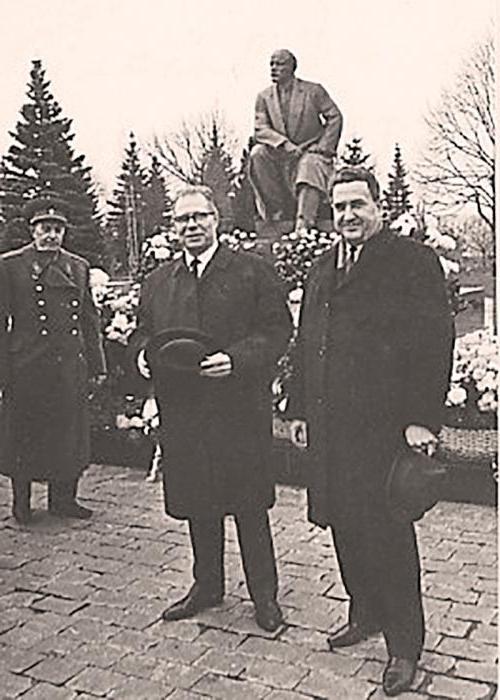
Kulakov differed from most of the elderly party leaders who were not ideologically knowledgeable in practical production. Having reached a high post, he tried to improve agricultural production in the Soviet Union. Belief in communist ideas did not impede the understanding that under the existing conditions the peasantry could not effectively develop and feed the country. He suggested massively distributing land to the townspeople for giving and running their own households. Thoughts about introducing farming in the Soviet Union seemed completely wild, Kulakov even proposed exempting farmers from taxes in the first two years.
Despite his high post, he was released abroad only within the socialist countries of Eastern Europe. Apparently, too free thoughts about the structure of the Soviet village inspired some concern for his trustworthiness.
At the Kremlin wall
The departure from the life of Fedor Davydovich Kulakov was sudden. The young leader by the standards of the Soviet nomenclature died on July 17, 1978. His unexpected death entailed rumors and gossip. Apart from the oncological operation that he successfully completed in 1969, Kulakov was a healthy and strong person. Although sharp criticism of the agricultural industry and himself, which was voiced shortly before the fateful day at one of the party plenums, of course, did not add health to Fedor Davydovich.
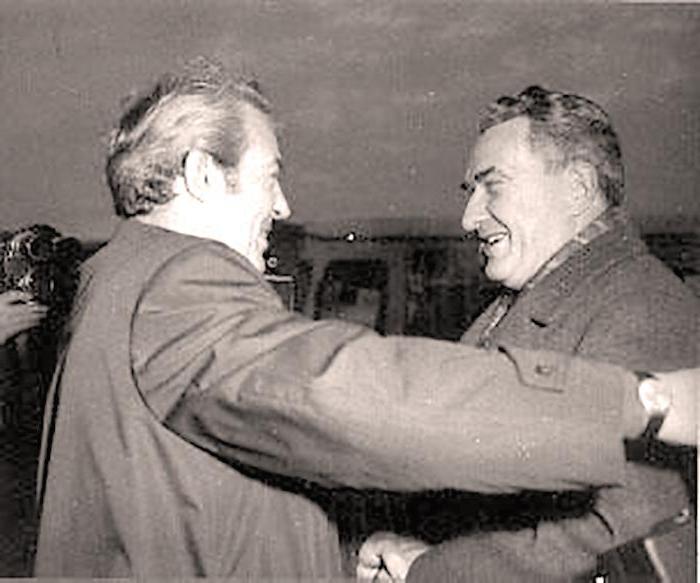
The official version of the cause of death is heart failure. But people who knew Kulakov discussed other possible versions: from murder to suicide. And the arguments for confirming their point of view were weighty, because Kulakov was considered one of the probable successors of aging L. I. Brezhnev as the party’s general secretary. And he, with his point of view on the need for real changes in the economic sector of the economy, could be inconvenient to many colleagues from the top Soviet leadership. This is supported by the fact that a number of members of the Politburo did not attend the funeral ceremony. This was an unprecedented event in Soviet history.
After cremation, the ashes of F. D. Kulakov were buried in the Kremlin wall.
The wife of Kulakova, Evdokia Fedorovna, after the death of her husband, visited his homeland, the village of Fitizh. Here, on the site of an old hut, in which they settled after the wedding, built a new house and often came to Fitizh for the summer. The house gradually began to resemble a museum, which the villagers willingly looked into. And an undying memory is the best national monument to an outstanding person who, even after death, was not forgotten in his small homeland.